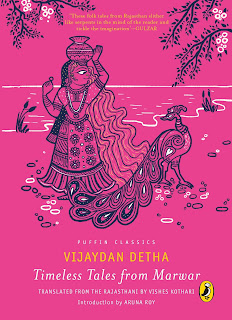June reading, part II
Happy July! I had an unexpectedly busy week so I'm a couple of days late but who cares. One thing I did was spend an afternoon at the county board of supervisors' budget meeting, lobbying for them not to cut the library budget (which they already did last year). It would have brought the largest branches in the system down to three days a week. To our great surprise, it actually worked and the board decided not to enact the cuts -- but only for one year.
We also held an unexpected early birthday party, due to various factors such as the presence of the person involved and another friend being present from out of town. So I spent a lot of time thinking about food -- a thing I don't do a lot any more now that I'm an empty nester. And now, on to the books!
Actually, I have been too lazy. There are too many books here for just one post. I'm going to put my Books of Summer here, and do another post on the books I've read that weren't on that official list.
Summerbook #4: Timeless Tales From Marwar, by Vijayan Detha: Detha, lovingly known as Bijji, was an author, master storyteller, and collector from the Rajasthan area of India. He wrote in his native Rajasthani (look up bio) and this is a selection of tales from his Garden of Tales, a 14-volume collection of Rajasthani folktales. There's a wide variety in here -- ghost stories, tales of nasty thakars, benevolent kings, and hard-working farmers, stories of clever animals and insects, the tale of a magical snake pair who solve a difficult problem, lots of good stuff. I especially enjoyed the story of a little boy who plants one of his mother's gulgulas (a fried treat), grows a gulgula tree, and outwits the witch who wants to eat him up.The translator has done a lovely job of leaving in as much vocabulary and Rajasthani flavor as possible, using footnotes to help the reader along. This is a really charming collection -- though some illustrations would have been nice too.
Summerbook #5: Greek and Roman Folklore, by W. R. Halliday: I picked this up at work because I was looking through the folklore section and happened upon it. It's an ancient little hardback, just 150 pages, and kind of cute. It dates from 1963, which is before the college was founded, so it must have been donated at some point; we have quite a few books like that. This is from a series titled "Our Debt to Greece and Rome," After a stultifyingly boring introduction, Halliday takes us on a little tour of ancient Greco-Roman superstitions, folktales, and traditions. He includes some games and children's songs that are just like ours -- the ancient Greek version of "Rain, rain, go away," and so on. Ghosts were supposed to be black, as opposed to our idea of being white, or appeared as skeletons. My favorite part was the descriptions of ideas about witchcraft; witches could cut your throat, take our your heart, and then close up the wound with a sponge. You'd wake up feeling fine, but as soon as you see running water you'll be thirsty, the sponge will fall out, and you'll fall down dead. Right after that, we learn that someone's sudden and inexplicable wealth might be attributed to the person having grabbed a goblin's hat and so getting access to his treasure. A fun little book and not too heavy-duty.Summerbook #6: England Speaks: Being Talks with All Manner of Folk, of Humble and Exalted Rank, with a Panorama of English Scenes, by Philip Gibbs: Now this one was pretty heavy-duty! Gibbs, a journalist, just wanders around England in 1935, talking to as many different kinds of people as he can. He's a modern Boz. Opening with observations about a royal Jubilee, he then visits the homeless men sleeping in the crypt of St. Martins in the Fields, goes to a royal garden party, tours Jarrow (the epicenter of England's unemployment crisis), and visits with famous playwrights. All of these coalesces into three main themes: concerns about unemployment, fears about Hitler and the probability of another devastating European war, and whether the kids are all right (they are). It's quite an enjoyable read, best dipped into at leisure.
Sometimes you get hit with just how long ago 1935 was. "The Prince of Wales" comes up every so often (a very sympathetic chap with no false pride), and in a few years he'll be Edward VIII, abdicating in favor of his younger brother. Since this prince is still single, Gibbs occasionally points out a little girl named Elizabeth "who may bring a new Elizabethan era to this land of England later on."
Summerbook #7: My Cousin Rachel, by Daphne du Maurier: I've heard of this novel as one of du Maurier's best, but didn't know anything about it except that I expected a lot of Cornish scenery. I didn't get as much as I thought I would! The narrator, Philip, is a young man brought up to be his uncle's heir. It's always been just the two of them, but Ambrose must winter in Italy for his health and there he meets and marries a distant widowed cousin, Rachel. Philip is consumed with jealousy, and then hatred, for Ambrose dies before he can come home and it must be Rachel's fault. And now she wants to come and visit! But Philip finds her utterly unexpected, and they become friends. Philip, probably the least self-aware narrator in history, develops strong feelings for Rachel....an intriguing and unexpected story. I surprised myself by reading it in just a couple of days.









Comments
Post a Comment
I'd love to know what you think, so please comment!